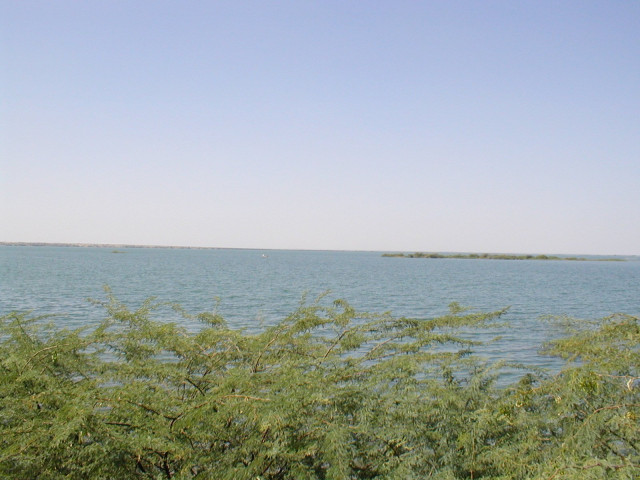Keenjhar floating solar project: Boon or a bane?
Fishing communities, wildlife experts question environmental impact of 500MW project

Pakistan's first floating solar power project will be built over Keenjhar Lake - the country's largest freshwater reservoir - at a cost of Rs78 billion within two years which will generate 500 megawatts electricity. However, the local fishing community and wildlife experts are raising concerns about the potential environmental hazards of the project.
Keenjhar Lake has been declared as a Ramsar site and a wildlife sanctuary. A ramsar site is a wetland site designated to be of international importance under the Ramsar Convention, aka "The Convention on Wetlands", an international environmental treaty signed in 1971 in Ramsar, Iran, under the auspices of UNESCO.
The idyllic Keenjhar Lake is known for its scenic beauty and biodiversity. It is also a popular tourist destination as it attracts picnickers on weekends and during holidays. Sindh's popular folk tale 'Nuri Jam Tamachi' is also attributed to this lake. The raised tomb in the centre of the lake is said to be that of Nuri, the beautiful fisher girl whom Jam Tamachi, the then ruler of Sindh, had married after a love affair.
Experts argue that solar energy projects built on lakes and ponds are more efficient. In 2007, the world's first floating solar power project was built in Japan. In the following years, such projects became increasingly popular as more countries, including Bangladesh, India, and the Maldives, followed suit.
The fishing community living on the banks of Keenjhar Lake fears the project would have a negative effect on the local flora and fauna. The vegetation and different types of plants on the lake's surface are a source of food for migratory birds, including those from Siberia, they say. The covering of water surface with solar panels will reduce the flow of sunlight and endanger the underwater plants as well as aquatic life.
While sharing details, the project's finance head Irtza Kazmi said that it was conceptualised two and a half years ago. "It will be the first floating solar power project in Pakistan. Its benefits outweigh the disadvantages," he told The Express Tribune. "It will help save water by stopping the process of evaporation as part of the lake surface will be covered with solar panels," he added. "According to some estimates it could help save about four million gallons of water per day."
The conditions facing fishermen around Keenjhar Lake are also not good as many youths lack proper boats and rely on styrofoam boats for fishing. The floating solar project would help address these issues by providing regular engagement with the local communities.
"In the first phase, the project will create 1,000 employment opportunities. Out of which 30% will be reserved for women to ensure gender equality. Participants will receive technical training, and various types of fish seeds will be supplied for aquatic breeding," Kazmi said.
The environmental and social study for the project was carried out by "Go Energy" in accordance with Clause 17 of the SEPA Act 2014. As outlined in the project report, energy demand in Sindh is on the rise. The floating solar project is designed to be more environmentally friendly than fossil fuel-based electricity, aiming to minimise environmental damage and global warming.
The government has stopped the construction of new coal-fired power plants due to increasing environmental concerns. The floating solar project will harness clean energy sources, avoiding the air quality deterioration associated with greenhouse gas emissions. The Sindh government stands to benefit from tax revenues generated by this project, which is expected to lower electricity costs for consumers. The construction phase is projected to create 250 to 300 jobs, with local residents prioritised during the operation and maintenance phases.
Muhammad Jamshed Iqbal Chaudhry, Senior Manager of Research and Conservation at WWF Pakistan, said that the floating solar project could alter the surface area of Keenjhar Lake, potentially affecting habitats for aquatic and semi-aquatic birds. The installation of large solar panels may cast shadows that hinder light penetration, impacting aquatic plants and the animals that rely on them for food. The project could raise lake water temperatures by absorbing heat, and noise during construction may disrupt local bird breeding.
Chaudhry also warned that chemicals used for maintaining or cleaning the solar panels could lead to chemical pollution, posing risks to aquatic life and bird populations. The project thus raises concerns about potential habitat destruction for various bird species. Sindh Wildlife Department's Deputy Conservator Mumtaz Soomro says that it is imperative that protection of wildlife and environment is ensured from every angle.



















COMMENTS
Comments are moderated and generally will be posted if they are on-topic and not abusive.
For more information, please see our Comments FAQ